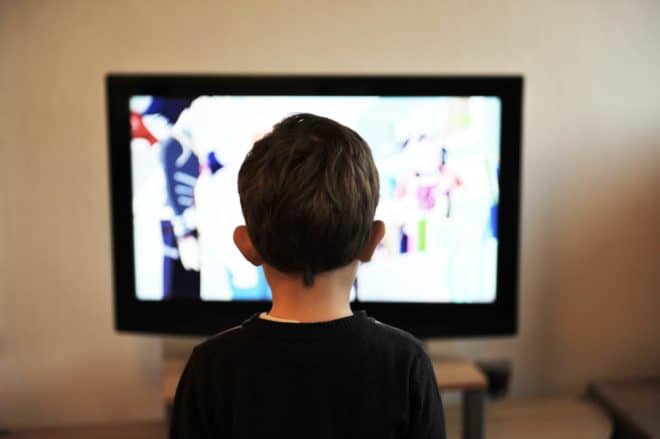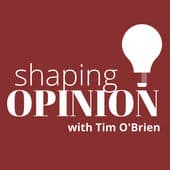Podcast Spotlight: Shaping Opinion


O’Brien is typically joined by an expert guest who can speak on the topic of the day, whether it’s the man behind Apple’s early marketing days, the history and resurgence of Tylenol, or the importance of C-SPAN, or even the story of the Goodyear Blimp, Shaping Opinion tells immersive stories that are likely new to the majority of listeners.
Discover Pods was fortunate to meet O’Brien and discuss Shaping Opinion, how he got started podcasting, his particular influences, and the challenges he faces. See below for our Q&A.
Listen: Apple Podcasts | Stitcher
Discover Pods: How’d you get into podcasting?
O’BRIEN: I started my career in radio, and have worked in broadcasting at first, and then in public relations for decades, so I’ve worked across all media at various points, doing client and other projects. I’ve always been a media junkie and a lover of all kinds of radio formats. In recent years, I’ve become a regular listener of several podcasts, and have found myself wondering what I could do to get back to my broadcast roots while offering something unique and worth listening to. Earlier in 2018, I decided to take my ideas and translate them into a plan, which resulted in the launch of Shaping Opinion in April.
DP: In your own words, why should listeners check out Shaping Opinion?
O’BRIEN: If you like history with a mix of society and culture, told in story form through conversations, I think you may like Shaping Opinion. What makes it different is that usually it focuses on what the people behind the stories were thinking at the time, the challenges they faced in explaining things, how they felt, and what they were trying to accomplish. The early feedback I’m getting tells me people like this format while they commute or work out, and the stories provide a different perspective.
DP: Are there podcasts that influenced Shaping Opinion or that you wanted to model it after?
O’BRIEN: One of the reasons I created Shaping Opinion was that I couldn’t find this sort of thing when I was listening. That said, like everyone else, I’m tremendously inspired by This American Life, Fresh Air, Generation Why, and Lore. There are probably little things I’ve learned from each that I’ve tried to incorporate to create something different.
DP: Are there specific episodes you’re particularly proud of?
O’BRIEN: For me, I think there are moments I’m glad to have captured, like when Sheila Tate, former First Lady Nancy Reagan’s press secretary, described in detail how things unfolded for her at the White House when Ronald Reagan was almost killed by an assassin. Or when Silicon Valley legend Regis McKenna described meeting Steve Jobs for the first time when he was working out of his parent’s garage. Or when Lynda Waggoner, the Fallingwater expert, took us on a closed-eyes tour of Frank Lloyd Wright’s masterpiece. You could hear the water (I recorded that, too) and almost see the house above the falls. Every podcast guest has said something that created a mental image you can only get by listening. And that’s what I want.
DP: Where do you want to take your podcast?
O’BRIEN: The main focus now is building a community or a following for the things we talk about, the way we talk about them, so I am working on creating awareness among people who already listen to podcasts but beyond that into people who might not yet be avid podcast fans, but who might be drawn to the things we talk about. But more important than that, I want to make sure to create quality content that stands up when binge-listeners discover it as we go, and that’s starting to happen. Everything else has to follow.
DP: What’s the most difficult part of podcasting for you?
O’BRIEN: I love the process, so while it may seem like a little thing, or a technical thing, I think the most difficult part is working to assure consistent audio quality when you have remote guests. I’m not in a position to demand that some of my guests work to meet my ideal technical specifications, so I have to do everything I can in advance to address audio quality prior to interviews. That’s something I’m working to get out in front of right now, and it’s helping.
DP: What podcasts are you listening to now?
O’BRIEN: In addition to the ones I mentioned above, I’m listening to Ben Franklin’s World, Historical Blindness, Thinking Sideways, Revisionist History. I still tend to get much of my NPR fix from the old-fashioned radio.
DP: Anything else you’d like to add?
O’BRIEN: Other than inviting people to listen, I’d also invite them to get in touch and let me know what’s on their mind. To me, podcasting is a conversation with the listener that only starts with the episode. (tim@shapingopinion.com)













Comments
Comments are closed.